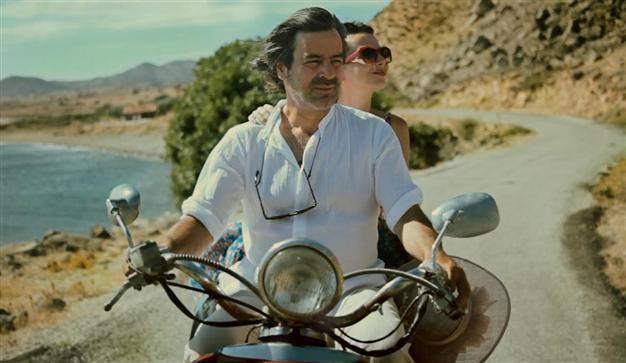Gökçeada sounds out with its silence in a new movie
ISTANBUL - Hürriyet Daily News

The main character of the film is the Gökçeada island itself; the other characters are Murat, who records the sounds on the island, and Madame Styliani.
The silent history of Gökçeada Island in the northwestern part of Turkey is now set to a voice on the silver screen thanks to a film directed by Selim Evci.
The film, “Rüzgarlar” (Winds), which will be released on June 21 with English subtitles, features the story of Gökçeada Greeks, who had to leave the island because of the population exchange (Mübadele) of the 1920s.
The main character of the film is the island itself; the other characters are Murat, who records the sounds on the island, and Madame Styliani.
Speaking to the Hürriyet Daily News, Evci explained the reason why he had decided to shoot the film, saying: “When I went to Gökçeada many years ago for a photo shoot, I saw abandoned houses as well the furniture and chests still kept in the houses which didn’t even have a roof. These objects showed that people had left their houses in a hurry. ‘What made these people leave their house like this?’ I thought.”
Evci, trying to find an answer to this question, decided to make the film. It is a historical tragedy that peoples were forced to suffer great traumas because of international policies, he said.
“In accordance with the Lausanne Treaty signed in 1923, Muslim people living in Western Thrace and Greeks living in Istanbul were excluded from the population exchange. Gökçeada (Imbros) and Bozcaada (Tenedos) were give special status. But because of policies implemented as a result of the Cyprus incidents in 1964, Greeks on the island were forced to emigrate,” he said. The film was shot on the island’s Tepeköy (Agridya), Zeytinliköy (Hagia Todori) and Kaleköy (Castro) villages and Istanbul over a period of five weeks.
Sounds of the island As for the film’s main character, the island itself, Evci said: “We highlight in the film the sounds of the island through a person who listens to and records these sounds. For me, the sounds and wind filling up the empty house in the abandoned Greek villages were the sound of those who once lived there. In spite of its tragic plot and the loneliness of the main character, the film was made to become a hope and to give strength to those who are fighting for their identity.” He said those who had left the island were a loss. “We need to take a lesson from it. Some 8,500 Greeks were living on the island in 1923; now the number is 230.”Evci also said, however, that he had difficulties in finding a movie theater to show the film.
